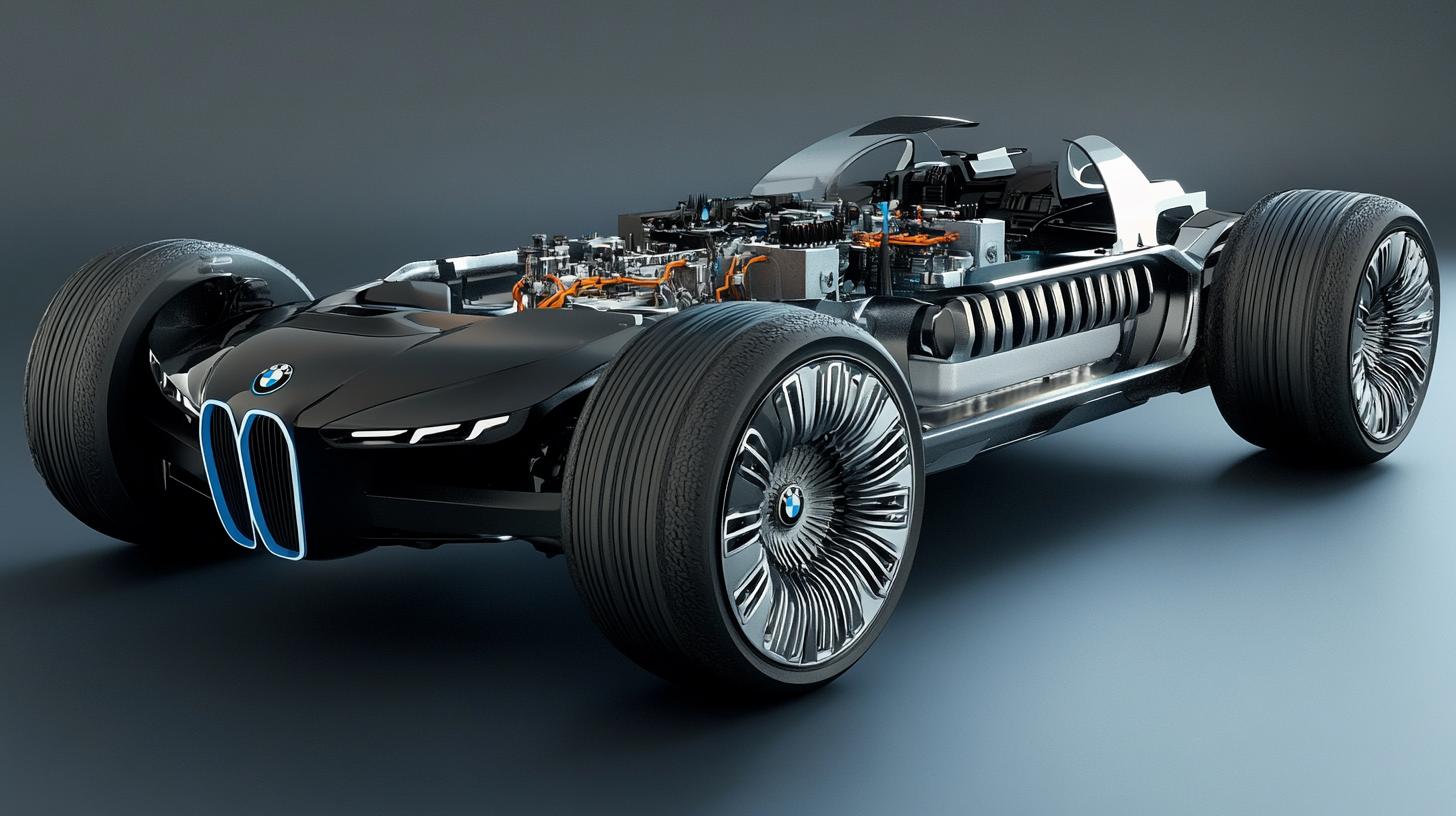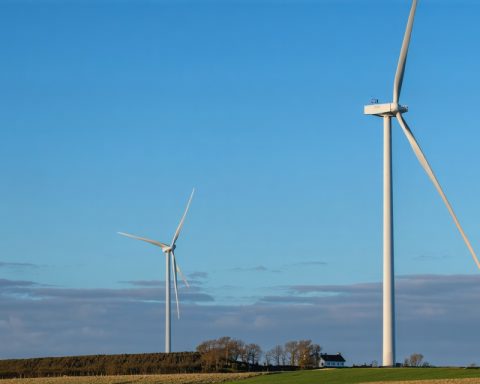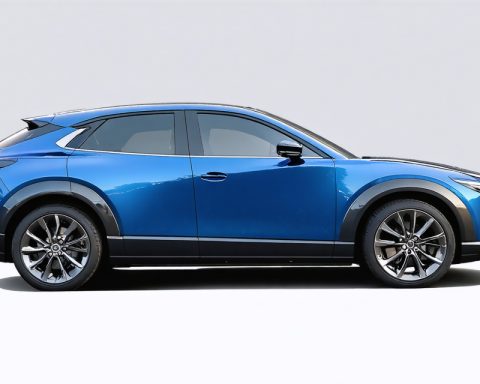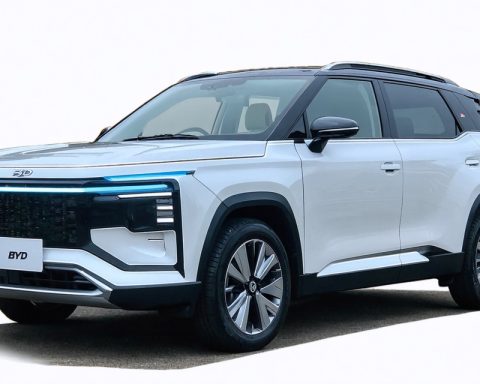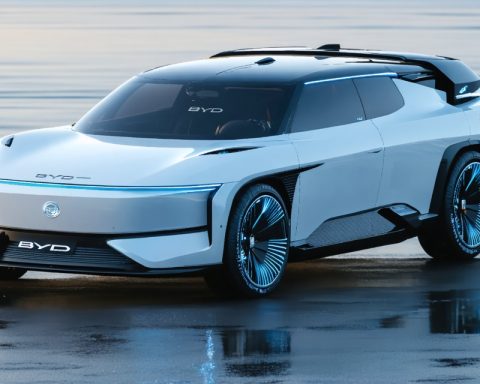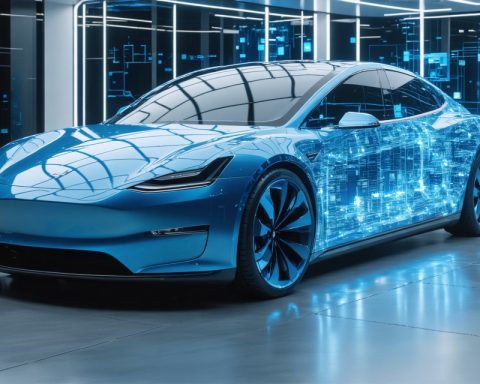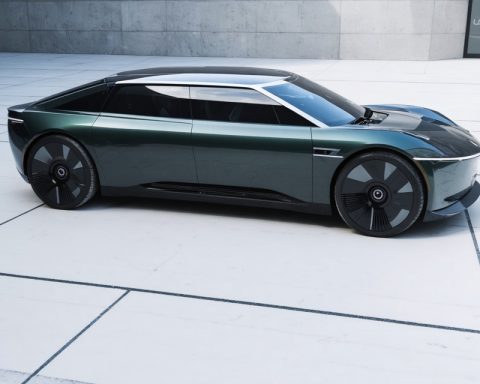In a bold move set to redefine sustainable transportation, BMW has ventured beyond its electric prowess and into the realm of hydrogen-powered vehicles. As industry giants Toyota and Hyundai also explore this path, the focus turns to BMW’s latest masterpiece—the iX5 Hydrogen. Harnessing the power of hydrogen, this ambitious project promises to raise the bar for clean energy solutions despite current infrastructure challenges.
With the iX5 Hydrogen, BMW combines its renowned engineering excellence with the forward-thinking hydrogen propulsion system. The vehicle promises an extensive range, rapid refueling, and emissions-free driving, all features that elevate its status in the realm of green technology. The concept car rides on BMW’s popular X5 platform, yet it aspires to outshine competitors by offering the kind of seamless performance in inclement weather that consumers expect.
BMW’s strategy acknowledges that no single technology can address all global mobility needs. Thus, a mix of energy solutions—including battery-electric and hydrogen vehicles—forms the backbone of the company’s plan to realize a zero-emission future.
The design of the iX5 Hydrogen isn’t just about eco-friendliness; it’s a blend of style and green innovation, marked by distinctive features like the BMW I Blue patterning. Consumers can anticipate a full-fledged market launch, slated for as early as 2025, as BMW remains poised to adapt to evolving demands.
Though challenges persist—primarily related to hydrogen infrastructure—the potential for revolutionizing global transportation is immense. To this end, BMW seeks not only to innovate but to lay the foundations for a future where hydrogen, alongside electric, hybrid, and fuel cell vehicles, leads the charge toward an ecological revolution.
The Untold Impact of Hydrogen-Powered Vehicles: Beyond BMW’s iX5 Hydrogen
In the ever-evolving landscape of sustainable transportation, the emergence of hydrogen-powered vehicles represents a seismic shift with far-reaching implications for individuals, communities, and nations worldwide. While Toyota, Hyundai, and now BMW have made headlines, the ensuing ripple effects extend far beyond these automotive giants’ manufacturing plants.
What Lies Ahead for Drivers and Communities?
While BMW’s iX5 Hydrogen propels hydrogen technology into the spotlight, examining its impact on larger communities reveals potential shifts in infrastructure, job markets, and environmental benefits. Currently, the primary challenge for hydrogen-powered vehicles lies in developing an extensive refueling network. This infrastructure need is already creating a demand for skilled labor in engineering and construction, potentially boosting employment in regions equipped to meet this burgeoning sector’s needs.
Is Hydrogen Truly the Fuel of the Future?
The question of whether hydrogen will become a dominant fuel source sparks both excitement and controversy. Unlike electric vehicles, which rely on lithium-ion batteries and thus place a significant burden on mining activities, hydrogen can be generated cleanly from various sources, including water. However, skeptics question whether the energy-intensive nature of hydrogen production can truly balance out its environmental positives in the long term.
How Will Hydrogen Vehicles Affect Your Daily Commute?
Hydrogen vehicles offer rapid fueling times and impressive mileage compared to their electric counterparts. This could transform daily commutes, particularly in regions where long travel distances are common. With no greenhouse gas emissions during operation, these vehicles promise improved air quality in urban areas—a change that could result in fewer health issues linked to air pollution. This, in turn, might lower healthcare costs over time, thus benefiting both individuals and government healthcare systems.
Controversies and What to Watch
Hydrogen vehicles stir debates regarding their economic and environmental efficacy. Some critics argue that these vehicles represent a costly investment without guaranteed returns. Furthermore, the environmental impact of producing hydrogen through non-renewable methods can offset its operation benefits. Proponents, however, advocate for its potential as a clean fuel, offering versatile energy solutions for areas less suited to battery-electric alternatives.
Global Implications and Geopolitical Shifts
Hydrogen’s ascendancy in the automotive sector may reconfigure global energy dynamics. A shift toward hydrogen could reduce dependence on oil-producing countries, diversify energy sources, and drive new international alliances centered around low-carbon technologies. Countries with abundant access to water resources and renewable energy might emerge as leaders in hydrogen production, reshaping global economic relationships.
Final Reflections
As BMW and others forge ahead with hydrogen-powered transport, keeping an eye on its societal impact is crucial. Beyond the obvious environmental benefits, these vehicles could inspire new economic models and healthier urban living standards. Whether hydrogen will fully revolutionize transportation remains uncertain, but its capacity to inspire change is undeniable.
To explore more about hydrogen technology and electric vehicles, visit BMW and Toyota.
